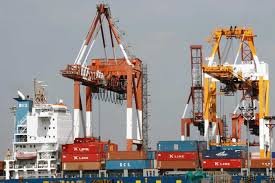GLOBAL ALARMS RISE AS CHINA’S CRITICAL MINERAL EXPORT CURBS TAKE HOLD

Alarm over China’s stranglehold on critical minerals has intensified as global automakers, including German and Indian manufacturers, warn that restrictions on exports of rare earth alloys, mixtures, and magnets could cause production delays and outages. China’s decision in April to suspend exports of these essential materials has disrupted supply chains for automakers, aerospace manufacturers, semiconductor companies, and military contractors worldwide.

The move is seen as leverage by China in its ongoing trade war with US President Donald Trump, who has imposed steep tariffs on Chinese imports in an attempt to narrow the US trade deficit and revive domestic manufacturing. Trump and Chinese President Xi Jinping are expected to discuss the export ban this week, with the White House actively monitoring China’s compliance with the Geneva trade agreement.
“If the situation is not changed quickly, production delays and even production outages can no longer be ruled out,” said Hildegard Mueller, head of Germany’s auto lobby. Shipments of magnets have been halted at Chinese ports while license applications are processed, sparking anxiety among officials and corporate leaders.

Frank Fannon, a minerals industry consultant and former US assistant secretary of state for energy resources, believes the global disruptions are not surprising. “We have a production challenge in the US and we need to leverage our whole of government approach to secure resources and ramp up domestic capability as soon as possible. The time horizon to do this was yesterday,” Fannon said.
Diplomats and executives from India, Japan, and Europe are seeking meetings with Beijing officials to push for faster approval of rare earth magnet exports. A Japanese business delegation will visit Beijing in early June, while India is organizing a trip for auto executives in the next two to three weeks.

Major automakers, including General Motors, Toyota, Volkswagen, and Hyundai, have expressed concerns about the impact of the export restrictions on their production. “Without reliable access to these elements and magnets, automotive suppliers will be unable to produce critical automotive components, including automatic transmissions, throttle bodies, alternators, various motors, sensors, seat belts, speakers, lights, motors, power steering, and cameras,” the Alliance for Automotive Innovation wrote in a letter to the Trump administration.




















































































































































































































































































































































































































































































































































































































































































































































































































































































































































































































































































































































































































































































































































































































































































































































































































































































































































































































































































